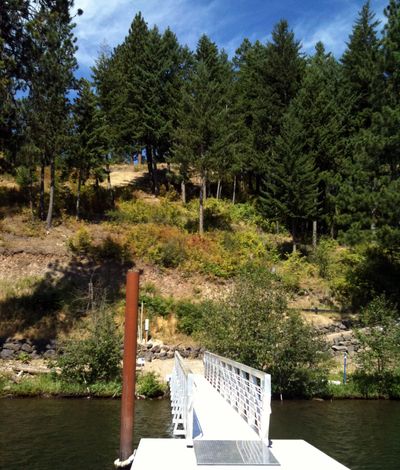Judge tosses lawsuit opposing Camp Easton sale

A Kootenai County judge on Wednesday ruled against legal challenges by area Boy Scouts and their supporters to halt the proposed sale of Camp Easton to a North Idaho development company.
District Court Judge John Patrick Luster on Wednesday denied efforts by a group calling itself Camp Easton Forever to halt a possible sale of the camp, which has been used since 1929 as a summer camp for regional Boy Scouts.
Last year the Inland Northwest Council of the Boy Scouts — which governs the camp and regional scouting — described plans to swap the 383 acres at Camp Easton for a new camp along Sunup Bay on the west shore of Lake Coeur d’Alene.
Opponents have rallied widespread opposition to the planned sale and swap, saying Camp Easton, on the lake’s eastern shore, is a unique site and too valuable to sell. Last fall those opponents filed the lawsuit, arguing the original deed and donation of the Camp Easton property specified it was to be always used for scouting.
Luster’s ruling allows the Inland Northwest Council to continue its discussions with Discovery Land Co., the proposed developer who wants Camp Easton and that said it will build a new, modern Scout camp on 270 acres at Sunup Bay in exchange.
“The discussions with Discovery have been on hold while the suit was pending,” said Tim McCandless, the CEO of the area Scouts group.
McCandless added no terms of a sale have been established and no sale will occur if the Scouts group doesn’t obtain a solid deal from Discovery.
Discovery, whose parent company is based in Arizona, has developed the Gozzer Ranch housing development and golf course along Lake Coeur d’Alene. It has indicated it regards the Easton property as suitable for a new housing and recreation development.
Luster’s Wednesday ruling said the Camp Easton Forever group could not establish legal standing to oppose the sale. His ruling noted that the effort to block the sale wasn’t based on a “peculiar or personal” injury or monetary loss by any of the several plaintiffs who filed the suit.
Without that condition, the group’s legal position was invalid to argue against the sale, he said.
Luster also disallowed arguments by the opponents who cited language from the 1929 meeting minutes when the Easton land was donated by owner F.W. Fitze to the Scouts.
The opponents argued the notes state that the camp land was to be used forever for scout activities.
Luster disagreed, saying the actual deed that transferred the land said nothing about permanent use or the creation of a permanent trust for the property.
Tom Little, a resident of Kootenai County and a longtime Camp Easton volunteer, was among the original group of opponents filing the suit to block the sale. He said Luster’s ruling will likely be appealed.
“There are other legal directions we will take,” Little said.
Attempts to reach attorneys representing Camp Easton Forever were not successful.
McCandless said no date or timeline has been set for concluding discussions with Discovery Land Co.